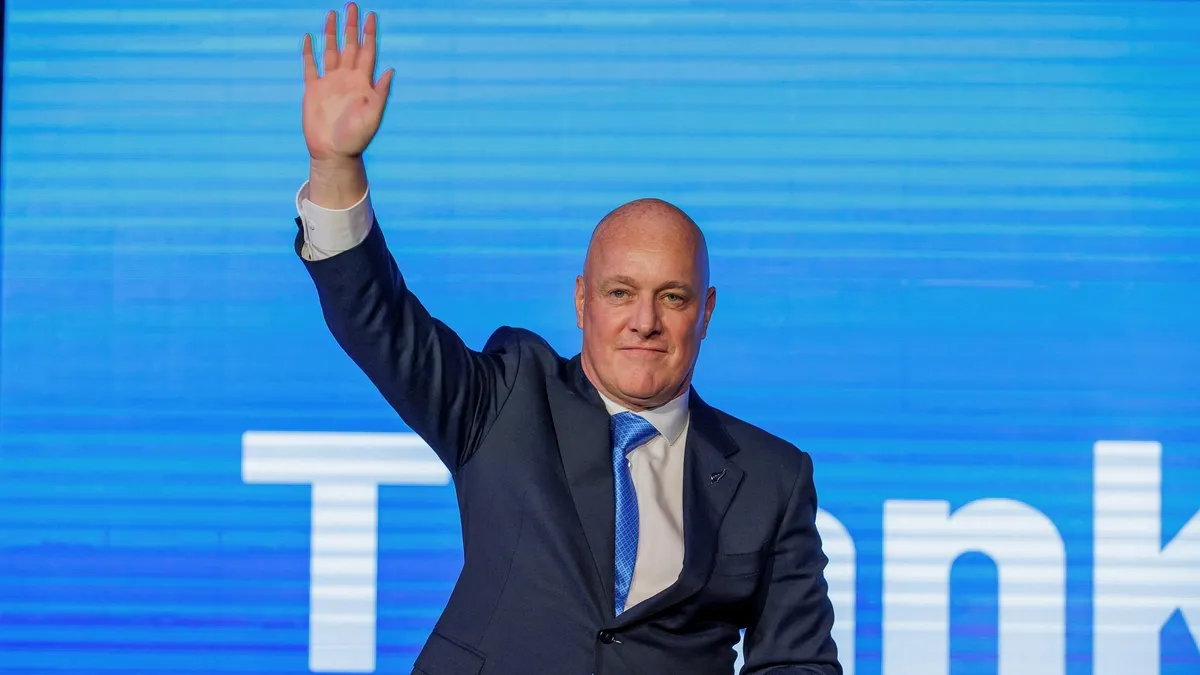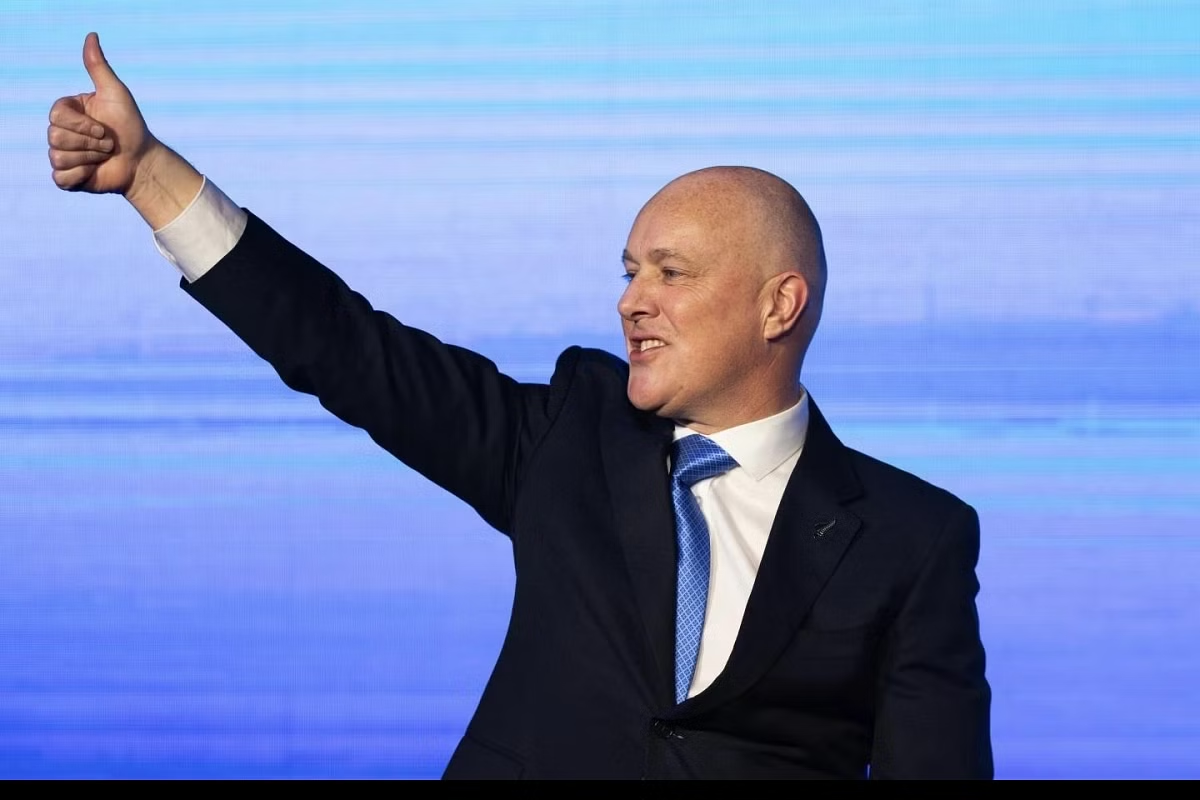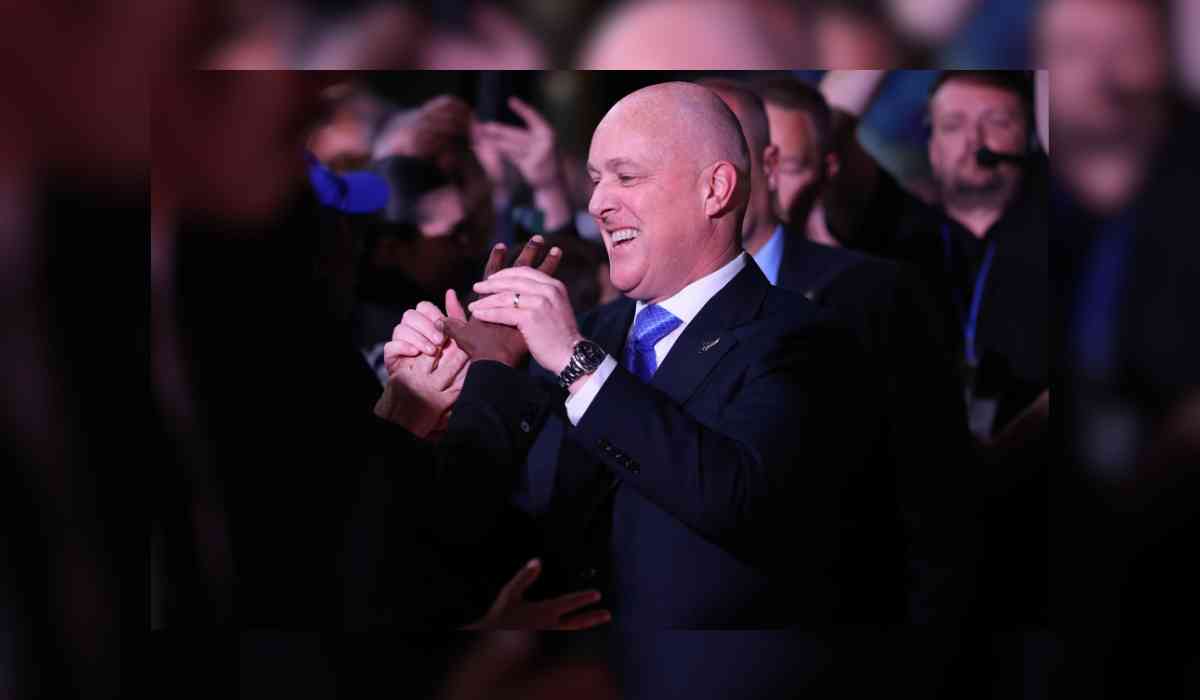Christopher Luxon, a former businessman, secured a significant election win, becoming New Zealand's next prime minister. This change followed six years of leadership by Jacinda Ardern's liberal government.
Luxon's exact government composition is yet to be finalized as ballots continue to be counted. He expressed his humility and anticipation for his new role during an event in Auckland, where he was joined by his family.

The outgoing Prime Minister, Chris Hipkins, conceded defeat and expressed pride in his government's achievements during his nine-month tenure.
With 39% of the vote for the National Party under Luxon, he plans to form an alliance with the libertarian ACT Party. The Labour Party, led by Hipkins, received 27% of the vote, significantly lower than their previous result under Ardern.
Special votes, accounting for about 20% of the total, are yet to be tallied. Notable incumbent politicians, including the foreign minister, lost their seats.
The election saw a competitive race for Ardern's old electorate seat, Mount Albert, traditionally a Labour stronghold. Melissa Lee, the National Party candidate, expressed excitement and nervousness about the outcome, as voters voiced concerns about the economy and living costs.

Luxon promised tax cuts and a crackdown on crime, while Hipkins pledged free dental care and the removal of sales taxes on specific items. The election also had implications for the government's relationship with Indigenous Māori, as Luxon intended to remove the Māori Health Authority, a move criticized by Hipkins as condoning racism.
Luxon's early days in politics included dealing with crises, such as floods and cyclones. He focused on addressing the cost of living.
During the campaign, both Luxon and Hipkins travelled the country, with Luxon promising to tackle crime and traffic issues. Despite some gaffes, Luxon held his own in televised debates against the more experienced Hipkins.
© Copyright 2023. All Rights Reserved Powered by Vygr Media.























